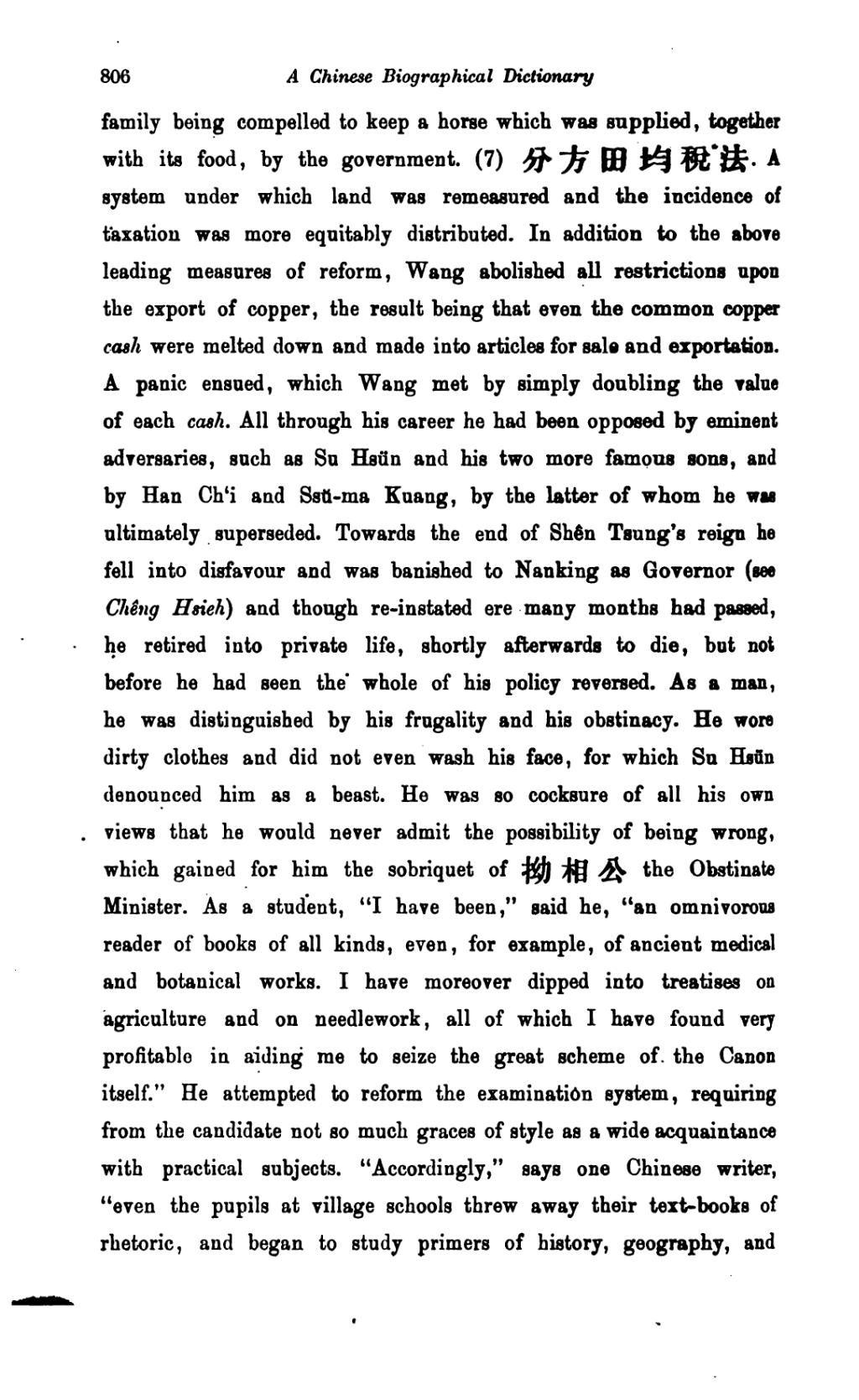family being compelled to keep a horse which was supplied, together with its food, by the government. (7) ^'fj B9 i^ ^ iS* ^ system under which land was remeasured and the incidence of taxation was more equitably distributed. In addition to the abore leading measures of reform, Wang abolished all restrictions upon the export of copper, the result being that even the common copper cash were melted down and made into articles for sals and exportatioD. A panic ensued, which Wang met by simply doubling the value of each cash. All through his career he had been opposed by eminent adversaries, such as Su Hsun and his two more famous sons, and by Han Ch4 and Ssti-ma Euang, by the latter of whom he was ultimately superseded. Towards the end of Sh6n Tsung*s reign he fell into disfavour and was banished to Nanking as Govemor (see CMng Hsieh) and though re-instated ere many months had passed, he retired into private life, shortly afterwards to die, but not before he had seen the' whole of his policy reversed. As a man, he was distinguished by his frugality and his obstinacy. He wore dirty clothes and did not even wash his face, for which Su Hsfin denounced him as a beast. He was so cocksure of all his own . views that he would never admit the possibility of being wrong, which gained for him the sobriquet of ^^ ij^ ^ the Obstinate Minister. As a student, *'I have been," said he, '*an omnivorous reader of books of all kinds, even, for example, of ancient medical and botanical works. I have moreover dipped into treatises on agriculture and on needlework, all of which I have found very profitable in aiding me to seize the great scheme of. the Canon itself.'* He attempted to reform the examination system, requiring from the candidate not so much graces of style as a wide acquaintance with practical subjects. "Accordingly," says one Chinese writer, "even the pupils at village schools threw away their text-books of rhetoric, and began to study primers of history, geography, and

